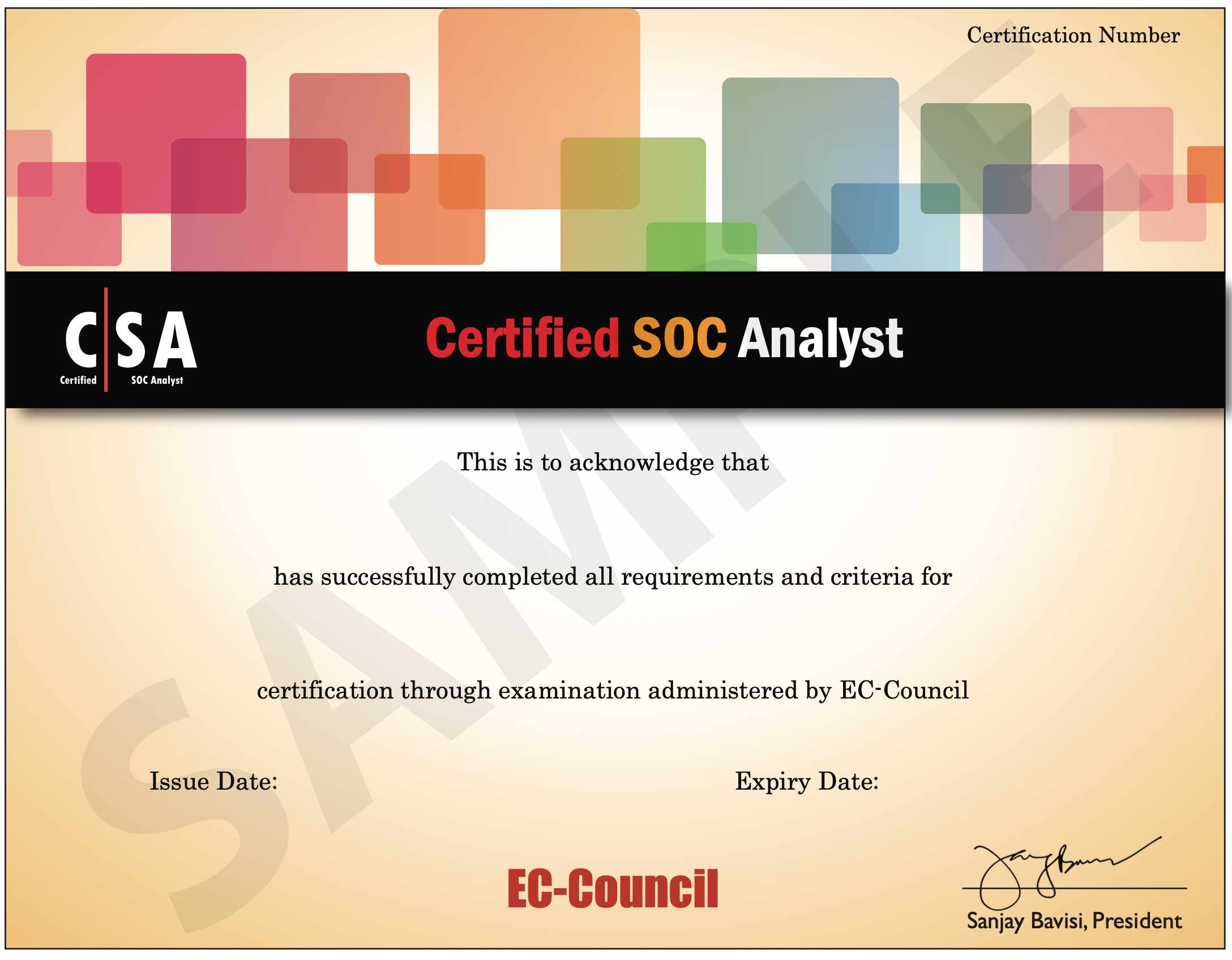EC-Council Certified Security Specialist (ECSS)
Course Overview

EC-Council Certified Security Specialist (ECSS) is an entry level security program covering the fundamental concepts of information security, computer forensics, and network security. It enables students to identify information security threats which reflect on the security posture of the organization and implement general security controls.
This program will give a holistic overview of the key components of information security, computer forensics, and network security. This program provides a solid fundamental knowledge required for a career in information security.
Learning Outcomes
- Fundamentals of network security.
- Network security protocols that govern the flow of data.
- Access control principles, terminologies, and models.
- Identity and access management (IAM).
- Regulatory frameworks, laws, and acts.
- Security policies, and how to conduct security and awareness training.
- Importance of physical security and physical security controls.
- Physical security policies and procedures.
- Best practices to strengthen workplace security.
- Environmental controls.
- Types of bastion hosts and their role in network security.
- IDS/IPS types and their role in network defense.
- Types of honeypots and virtual private networks (VPNs).
- Security incident and event management (SIEM).
- Key concepts of virtualization and OS virtualization security.
- Cloud computing fundamentals and cloud deployment models.
- Cloud security best practices.
- Fundamentals of wireless networks and encryption mechanisms.
- Wireless network authentication methods.
- Implementing wireless network security measures.
- Mobile device connection methods and management.
- Mobile use approaches in enterprises.
- Security risks and guidelines associated with enterprise mobile usage policies.
- Implement various enterprise-level mobile security management solutions
- Best practices on mobile platforms
- IoT devices, application areas, and communication models
- How security works in IoT-enabled environments
- Cryptographic tools, security techniques, and algorithms.
- Public key infrastructure (PKI) to authenticate users and devices in the digital world.
- Data security and its importance.
- Security controls for data encryption
- Perform data backup and retention.
- Implement data loss prevention concepts.
Exam Information
Course Content & Modules
Network Security Fundamentals
Learn the fundamental concepts of network security, including network protocols, security models, and basic security principles essential for protecting network infrastructure.
Identification, Authentication, and Authorization
Understand the three pillars of access control: identification (who you are), authentication (proving your identity), and authorization (what you can access) in network security.
Network Security Controls: Administrative Controls
Learn about policy-based security controls, security awareness training, incident response procedures, and administrative measures to protect network infrastructure.
Network Security Controls: Physical Controls
Explore physical security measures including access control systems, environmental controls, equipment protection, and physical barriers to secure network infrastructure.
Network Security Controls: Technical Controls
Master technical security controls including firewalls, intrusion detection systems, encryption, VPNs, and other technology-based security measures.
Virtualization and Cloud Computing
Understand virtualization security challenges, cloud computing models, shared responsibility models, and security considerations for virtual and cloud environments.
Wireless Network Security
Learn wireless security protocols, identify wireless attack vectors, implement wireless security controls, and protect against wireless network threats.
Mobile Device Security
Understand mobile security threats, implement mobile device management (MDM) solutions, and apply mobile security best practices for smartphones and tablets.
IoT Device Security
Learn Internet of Things security challenges, identify IoT attack vectors, and implement security controls for connected devices and smart systems.
Cryptography and the Public Key Infrastructure
Master cryptographic concepts, encryption algorithms, digital certificates, PKI infrastructure, and cryptographic protocols for secure communications.
Data Security
Learn data protection strategies, data classification, data loss prevention (DLP), backup and recovery, and data security best practices.
Network Traffic Monitoring
Learn network monitoring techniques, traffic analysis, intrusion detection, log analysis, and security information and event management (SIEM) systems.
Information Security Fundamentals
Learn fundamental information security concepts, principles, and frameworks essential for understanding cybersecurity foundations and best practices.
Ethical Hacking Fundamentals
Understand ethical hacking principles, legal frameworks, penetration testing methodologies, and responsible disclosure practices for security testing.
Information Security Threats and Vulnerability Assessment
Identify and assess various cybersecurity threats, vulnerabilities, and attack vectors that can compromise information systems and networks.
Password Cracking Techniques and Countermeasures
Master password attack techniques including brute force, dictionary attacks, and rainbow tables, while implementing strong authentication defenses.
Earn Your Industry-Recognized Certificate
Upon successfully passing the examination for this course, participants will be awarded a certificate, an example of which is shown below.




